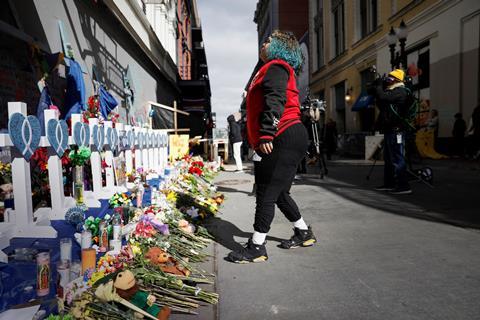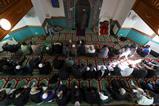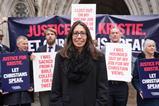From Bangladesh to Nigeria to New Orleans, hundreds fell victim to Islamic inspired terrorism over the Christmas period, says Tim Dieppe. Jesus’ instruction to “love your enemies and pray for those who persecute you” continues to be relevant

In the week leading up to Christmas, 46 people were killed in various attacks across Nigeria and the Democratic Republic of Congo, according to Open Doors. Some of these Christians were attacked on their way home from church on Christmas Day.
In Sudan, a congregation of 177 Christians was attacked during a Christmas prayer service, with soldiers threatening to kill all Christians in the area. In Bangladesh, there were death threats for those attending Christmas services. In Turkey, there was an armed attack on a church on New Year’s Eve. In Syria, a Christmas tree was set on fire and a church was attacked.
These attacks serve as a reminder that many Christians around the world live with the very real threat of persecution on a daily basis.
In the West, we are fortunate not to suffer such brutal threats and persecution, but nonetheless Islamic terrorism is sadly not uncommon. The attack in New Orleans on New Year’s Day killed at least 15 people and wounded dozens more when the attacker, Shamsud-Dun Jabbar, drove a rental truck into a crowd. An Islamic State flag was found in his vehicle, and Jabbar is know to be a convert to Islam who was growing ‘increasingly devout’ in his religion.
Then there was the Magdeburg attack on a Christmas market in Germany. The attacker presented as a radical ex-Muslim who was fiercely critical of Islam, but various ex-Muslim groups and individuals have questioned whether he genuinely had left Islam.
Apart from the Magdeburg attack where the motivation is unclear, the common thread in all these attacks is Islam. Indeed, the vast majority of attacks on Christians throughout the world occur at the hands of individuals or organisations with Islamic motivations.
How should we respond?
1. Pray. We should pray for our brothers and sisters who are living with the reality of Islamic persecution. Pray that God sustains and encourages them in their sorrows and struggles. Pray for miraculous interventions and for their ability to forgive and to be a powerful witness to the gospel. In the West, pray for security services who do an incredible job foiling attacks and arresting culprits.
2. Expose. We should not shy away from acknowledging the Islamic motivation for the majority of persecution of Christians, and indeed of much of terrorism around the world. While the vast majority of Muslims are peace loving people, the religion of Islam itself, as judged by its texts and by the example of its founder, is not peaceful. Many Muslims are unaware of this. Indeed, discovering what Muhammad really taught can cause Muslims to abandon their faith. It is helpful therefore to recognise the motives of the attackers, and to explain truthfully how Islamic texts have motivated them.
3. Learn. Christians in the West have often been trained in apologetics to atheists, but atheism is no longer the force it once was. The ‘New Atheism’ is old news now. You won’t meet many actual atheists in our culture. But you will meet plenty of Muslims. It is time for Christians to learn about Islam and to be equipped to witness to our Muslim neighbours. With this in mind, Beth Peltola and I wrote the short book Questions to Ask Your Muslim Friends.
4. Love. Jesus said that we should love our enemies and pray for those that persecute us (Matthew 5:44). While few of us in the West have people we would term ‘enemies’, and not many of us have suffered physical persecution (Hatun Tash is a notable exception), the requirement for love and forgiveness remains. “Perfect love casts out fear,” says John (1John 4:18). There is a very real danger, though, of letting fear overcome love. I think the greatest victims of Islam are Muslims themselves. They are enslaved to a false ideology. They are in desperate need of Jesus. By speaking the truth in love (Ephesians 4:15), they can come to accept the forgiveness that Christ offers to all of us. Fear will cause us to shy away from reaching out to others. Love will compel us to present the gospel and show Muslims how Islam is false.
This week is the 10th anniversary of the Charlie Hebdo attacks in Paris, and this year we will also see the 15th anniversary of the 7/7 attacks in London. I hope and pray that the year will be a peaceful one without such devastating attacks. But I recognise that the reality for many Christians living in fear of persecution is that there will not be peace. For them, and for us however, there is a supernatural peace that can transcend our circumstances and guard our hearts and minds in times of intense pressure (Phillippians 4:7). I pray that peace for all of us this year.







































No comments yet